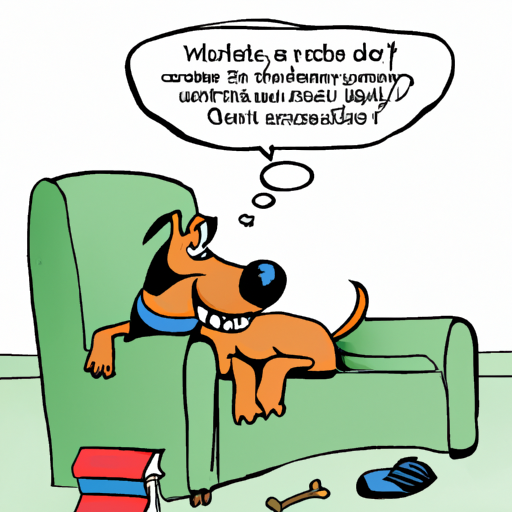Understanding Your Dog’s Behavior
Hello there, caregiver. You’ve probably noticed that your canine companion has a propensity to chew on things. It’s not just a random act, but rather a part of their natural behavior. Dogs chew for numerous reasons, and understanding these can help you manage their chewing habits more effectively.
- Puppyhood and Teething: Just like human babies, puppies chew when they’re teething. This helps alleviate the discomfort associated with their new teeth coming in.
- Boredom: When dogs don’t get enough physical and mental stimulation, they can resort to chewing to occupy their time.
- Anxiety: Dogs often chew when they’re anxious or stressed. It’s a way for them to self-soothe and calm themselves down.
- Dietary Needs: Sometimes, dogs chew due to nutritional deficiencies. They might be trying to get certain nutrients from non-food items.
How to Discourage Destructive Chewing
Once you’ve established why your dog is chewing, you can then take steps to discourage destructive chewing. Here are a few strategies that might help:
- Provide Plenty of Chew Toys: These can keep your dog’s mouth busy while also keeping their teeth clean and healthy.
- Exercise Your Dog Regularly: Regular physical activity can help tire your dog out and reduce their need to chew out of boredom.
- Correct Them Gently: If you catch your dog chewing something they shouldn’t, correct them gently and redirect them to a more appropriate chew toy.
Choosing the Right Chew Toys
When it comes to selecting chew toys for your dog, it’s essential to choose ones that are safe and appropriate for their size and chew style. Here’s a simple table to guide you:
| Size of Dog | Type of Chew Toy |
|---|---|
| Small | Soft, small toys |
| Medium | Durable, medium-sized toys |
| Large | Tough, large toys |
Coping with Separation Anxiety
If your dog’s chewing is a result of separation anxiety, it’s crucial to address this underlying issue. Consider training methods that help your dog feel more secure when you’re not around, or consult with a professional dog trainer or behaviorist.
Dietary Adjustments
Sometimes, simple dietary adjustments can make a big difference. If you suspect that your dog’s chewing is related to their diet, consult with your vet about possible changes to their food or supplements.
Frequently Asked Questions
Why does my dog chew on furniture?
Dogs may chew on furniture due to boredom, teething, or anxiety. Providing chew toys and regular exercise can help.
What can I give my dog to chew on?
Safe choices include chew toys designed for dogs, dog-safe bones, and some types of hard, dog-safe treats.
Why does my dog chew on his paws?
This could be due to allergies, dry skin, or anxiety. If your dog chews on their paws frequently, it’s best to consult with your vet.
Can chewing be harmful to my dog?
Excessive or destructive chewing can be harmful, especially if your dog swallows non-food items that could cause blockages. Always supervise your dog when they’re chewing, especially on new items.
Why does my dog chew things when I’m not home?
Your dog might be experiencing separation anxiety, or they might be bored. Ensuring they have plenty of exercise and mental stimulation can help.



